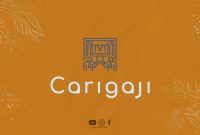Welcome to our detailed article on the education system in Singapore, a renowned global hub for academic excellence. In this article, we will delve into the various aspects of Singapore’s education system, from its foundation to its current state, highlighting its strengths and unique features.
The Foundational Years
The history of Singapore’s education system dates back to the early colonial era when the British established schools to provide basic education for locals. Over time, Singapore developed a strong emphasis on education, recognizing it as a crucial driver for national progress.
During the foundational years, Singapore’s education system aimed to provide a basic education to the population. Schools were established across the island, focusing on teaching fundamental subjects such as reading, writing, and arithmetic. These schools played a vital role in improving literacy rates and equipping individuals with essential skills for work and daily life.
As Singapore progressed, its education system underwent significant transformations. The government recognized the importance of education in building a knowledgeable and skilled workforce, thus investing heavily in developing a comprehensive and robust system.
Introduction of Compulsory Education
In 1965, Singapore implemented compulsory education, making it mandatory for children between the ages of six and fifteen to attend school. This policy aimed to ensure that every child had access to education, regardless of their socioeconomic background.
The introduction of compulsory education marked a significant milestone in Singapore’s education system. It laid the foundation for equal educational opportunities and created a more inclusive society, where every child had a chance to receive an education and pursue their dreams.
Evolving Curriculum
Over the years, Singapore’s curriculum has evolved to meet the changing needs of society and the demands of the global economy. The focus shifted from rote learning to a more holistic approach, emphasizing critical thinking, problem-solving, and creativity.
Singapore’s education system places a strong emphasis on core subjects such as English, Mathematics, Science, and Mother Tongue languages. These subjects form the backbone of the curriculum and provide students with a solid foundation in essential skills.
Additionally, the curriculum encompasses a range of other subjects, including humanities, arts, and physical education. This comprehensive approach ensures that students receive a well-rounded education, nurturing their intellectual, physical, and emotional development.
Embracing Technology
In recent years, Singapore’s education system has embraced technology as a powerful tool for learning and teaching. The government has made significant investments in educational technology, equipping classrooms with digital resources and encouraging the use of online platforms for educational purposes.
Technology integration in the classroom enhances students’ learning experiences, making lessons more interactive and engaging. It allows for personalized learning, where students can explore concepts at their own pace and access a wealth of digital resources to supplement their learning.
Furthermore, technology enables teachers to adopt innovative teaching methods, such as blended learning and flipped classrooms. These approaches promote active participation and collaboration among students, fostering a dynamic and stimulating learning environment.
A Strong Focus on Bilingualism
Singapore’s education system places great importance on bilingualism, recognizing the value of being fluent in both English and a Mother Tongue language. English is the medium of instruction in schools, while Mother Tongue languages (such as Mandarin, Malay, and Tamil) are taught as second languages.
The bilingual policy reflects Singapore’s multicultural society and its commitment to preserving its cultural heritage. By ensuring that students are proficient in their Mother Tongue languages, Singapore cultivates a sense of identity and strengthens intercultural understanding among its diverse population.
Moreover, being bilingual provides individuals with a competitive edge in the global arena, as it opens up opportunities for communication and collaboration across different cultures and languages.
Teacher Training and Professional Development
Teachers play a pivotal role in Singapore’s education system. They undergo rigorous training and professional development programs to enhance their teaching skills and stay abreast of the latest pedagogical approaches.
The National Institute of Education (NIE) in Singapore is responsible for training and developing teachers. NIE offers a range of programs, from pre-service training for aspiring teachers to postgraduate courses for experienced educators seeking to specialize in specific areas.
Continuous professional development is also encouraged, with teachers participating in workshops, conferences, and collaborative learning communities. This commitment to ongoing training ensures that teachers are well-equipped to deliver quality education and meet the evolving needs of their students.
Collaboration with Industry and Research Institutions
Singapore’s education system fosters strong partnerships between schools, industry, and research institutions. These collaborations aim to bridge the gap between academia and the workforce, ensuring that students are equipped with the skills and knowledge needed in the real world.
Industry partnerships provide students with opportunities for internships, work attachments, and mentorship programs. These experiences allow students to gain practical insights into their chosen fields and develop relevant skills that will enhance their employability.
Collaborations with research institutions, such as the Agency for Science, Technology, and Research (A*STAR), enable students to engage in scientific research and innovation. This exposure to cutting-edge research cultivates a spirit of inquiry and nurtures the next generation of scientists and innovators.
Support for Students with Diverse Needs
Singapore’s education system is committed to providing support and resources for students with diverse needs. The government recognizes that every individual has unique talents and challenges, and it strives to create an inclusive environment where every student can thrive.
Special Education (SPED) schools cater to students with disabilities and special needs, providing them with specialized programs and support services. These schools offer a tailored curriculum and individualized learning plans to meet the specific needs of each student.
In mainstream schools, students with mild learning difficulties or disabilities can access additional support through Learning Support Programs. These programs provide targeted interventions and resources to help students overcome their challenges and succeed academically.
Furthermore, financial assistance schemes are available to ensure that no student is deprived of educational opportunities due to financial constraints. These schemes provide financial support for school fees, textbooks, and other educational expenses, enabling students from low-income families to access quality education.
Primary and Secondary Education
The education journey in Singapore begins with primary school, which spans six years. Students receive a comprehensive education, focusing on core subjects such as English, Mathematics, Science, and Mother Tongue languages.
Primary school education in Singapore is designed to provide a strong foundation in key subjects. The curriculum emphasizes the acquisition of fundamental skills, such as reading, writing, and numeracy. Students also learn about Singapore’s history, culture, and values, fostering a sense of national identity.
Holistic Development
While academic subjects form the core of primary education, Singapore’s curriculum also places a strong emphasis on holistic development. Co-curricular activities (CCAs) play a significant role in nurturing students’ talents, interests, and character.
Students are encouraged to participate in a range of CCAs, including sports, arts, music, and clubs. These activities provide opportunities for students to explore their passions, develop teamwork and leadership skills, and cultivate a well-rounded personality.
CCAs also promote social integration, as students from diverse backgrounds come together to pursue shared interests. This fosters a sense of camaraderie and inclusivity, enhancing the overall school experience for students.
Primary School Leaving Examination (PSLE)
At the end of primary school, students undertake the Primary School Leaving Examination (PSLE). This national examination assesses students’ proficiency in English, Mathematics, Science, and Mother Tongue languages.
The PSLE plays a pivotal role in determining students’ academic pathways. Based on their PSLE results, students can apply for admission to secondary schools of their choice. The results also serve as a reference for streaming, where students are grouped into different academic streams based on their academic abilities.
While the PSLE is a high-stakes examination, the Singaporean government has made efforts to reduce academic stress and promote holistic development. Reforms have been introduced to shift the focus from pure examination results to a more comprehensive assessment of students’ abilities and talents.
Secondary Education and GCE O-Level
Secondary education in Singapore follows primary school and spans four to five years, depending on the academic stream. The curriculum is more specialized, allowing students to pursue subjects of their interest and aptitude.
At the end of secondary education, students sit for the GCE O-Level examination. This national examination assesses students’ proficiency in various subjects, including English, Mathematics, Science, Humanities, and Mother Tongue languages.
The GCE O-Level results are crucial as they determine students’ eligibility for further education pathways. Based on their results, students can choose to pursue a junior college education, enroll in a polytechnic, or enter vocational training at an Institute of Technical Education (ITE).
Junior College Education
Students who excel in their GCE O-Level examinations have the option to continue their education in junior colleges. Junior colleges provide a two-year pre-university education, culminating in the GCE A-Level examination.
The GCE A-Levelexamination is a rigorous and comprehensive assessment that prepares students for admission to local or overseas universities. It tests students’ depth of knowledge and critical thinking skills in their chosen subjects.
Junior college education in Singapore offers a broad range of subjects, allowing students to specialize in areas of their interest. Students can choose from science, arts, or commerce streams, tailoring their education to align with their future career aspirations.
Besides academic pursuits, junior colleges also offer a vibrant and enriching co-curricular program. Students can engage in a variety of activities, including sports, performing arts, clubs, and community service. These activities foster personal growth, leadership skills, and a sense of civic responsibility.
Polytechnic Education
For students who prefer a more hands-on and practical approach to learning, polytechnics in Singapore offer a viable alternative. Polytechnic education provides industry-relevant training and equips students with the necessary skills to enter the workforce or pursue further studies.
Polytechnic programs are structured around specific disciplines, such as engineering, business, design, and healthcare. Students are exposed to a combination of classroom learning, laboratory work, and real-world projects, preparing them for the demands of their chosen industries.
One unique aspect of polytechnic education is the emphasis on internships and work attachments. Students have the opportunity to gain practical experience by working in companies related to their field of study. This hands-on experience enhances their employability and provides valuable insights into the industry.
Upon completion of a polytechnic diploma, students can choose to enter the workforce or pursue further education at a local or overseas university. Many polytechnic graduates have successfully transitioned into well-paying jobs or continued their studies in specialized fields.
Institute of Technical Education (ITE)
The Institute of Technical Education (ITE) in Singapore offers vocational training and skills-based education to meet the needs of industries and provide pathways for students who prefer a more practical approach to learning.
ITE programs focus on technical skills and hands-on training, preparing students for specific careers in industries such as engineering, hospitality, culinary arts, and healthcare. These programs combine classroom learning with extensive practical training, allowing students to develop industry-relevant skills.
ITE graduates are well-equipped to enter the workforce directly, armed with practical skills and industry certifications. They contribute to Singapore’s economy by filling crucial roles in various sectors, supporting the nation’s growth and development.
Furthermore, ITE graduates who wish to pursue further education can do so through articulation and bridging programs. These programs provide opportunities for ITE graduates to progress to higher-level qualifications, such as diplomas or degrees, building on the foundation of their vocational training.
Higher Education Opportunities
Singapore boasts several esteemed universities, including the National University of Singapore (NUS), Nanyang Technological University (NTU), and Singapore Management University (SMU). These universities offer a wide range of undergraduate and postgraduate programs across various disciplines.
National University of Singapore (NUS)
As Singapore’s oldest and largest university, NUS is renowned for its comprehensive range of academic programs and research opportunities. It offers undergraduate and postgraduate courses in fields such as arts and social sciences, business, engineering, science, and medicine.
NUS prides itself on its research-intensive environment, encouraging students to engage in groundbreaking research projects and collaborations with faculty members. The university’s focus on innovation and entrepreneurship nurtures a culture of creativity and critical thinking.
Students at NUS benefit from state-of-the-art facilities, world-class faculty, and a vibrant campus life. The university’s diverse student population and global partnerships provide a rich and multicultural learning environment.
Nanyang Technological University (NTU)
NTU is Singapore’s second-largest university and is renowned for its strengths in engineering, science, and technology. It offers a wide range of undergraduate and postgraduate programs across various disciplines, including business, humanities, and social sciences.
NTU prides itself on its interdisciplinary approach, encouraging students to explore different fields and collaborate across disciplines. The university’s strong industry connections and research collaborations provide students with opportunities to work on real-world projects and gain practical experience.
NTU’s campus is equipped with state-of-the-art facilities, including research laboratories, innovation centers, and a vibrant student hub. The university’s commitment to sustainability and environmental stewardship is evident in its eco-friendly campus design and initiatives.
Singapore Management University (SMU)
SMU is Singapore’s youngest autonomous university and is known for its specialized focus on business and management education. It offers undergraduate and postgraduate programs in business, economics, social sciences, and law.
SMU prides itself on its interactive and seminar-style teaching methodology, fostering active student participation and critical thinking. The university’s emphasis on experiential learning, internships, and industry collaborations ensures that students are well-prepared for the challenges of the business world.
SMU’s central location in the city center provides students with access to a vibrant business district and numerous internship and networking opportunities. The university’s strong alumni network and partnerships with industry leaders contribute to its reputation as a leading institution for business education.
International Students in Singapore
Singapore has become a popular destination for international students seeking quality education. The diverse cultural environment, globally recognized qualifications, and English-medium instruction attract students from around the world.
Universities in Singapore offer a range of support services for international students, including orientation programs, language support, and cultural integration activities. Scholarships and financial aid are also available to help international students manage the cost of their education.
Studying in Singapore provides international students with a valuable cross-cultural experience, exposing them to different perspectives and broadening their global networks. Many international students choose to remain in Singapore after graduation, contributing to the country’s workforce and enriching its cultural fabric.
Teaching Pedagogy and Curriculum
The education system in Singapore emphasizes a holistic approach to learning, aiming to develop students’ critical thinking, problem-solving, and creativity. The curriculum is regularly reviewed and updated to stay relevant in a rapidly changing world.
21st-Century Competencies
Singapore’s education system places a strong emphasis on developing 21st-century competencies to prepare students for the challenges and opportunities of the future. These competencies include critical and inventive thinking, communication, collaboration, and information and media literacy.
Students are encouraged to think critically and creatively, to analyze and solve complex problems, and to communicate effectively across different platforms. The curriculum incorporates project-based learning, group work, and real-world applications to develop these essential skills.
Information and media literacy are emphasized to equip students with the ability to navigate and evaluate the vast amount of information available in the digital age. Students learn to discern reliable sources, analyze data, and use technology responsibly and ethically.
Values Education
Singapore places a strong emphasis on values education, aiming to develop students’ character, resilience, and moral integrity. Values such as respect, integrity, responsibility, and harmony are woven into the curriculum and integrated into daily school life.
Character and citizenship education programs promote social and emotional development, fostering empathy, resilience, and a sense of civic responsibility. Students engage in activities that promote teamwork, leadership, and community service, cultivating a strong moral compass and a commitment to serving others.
Student-Centric Approach
The education system in Singapore adopts a student-centric approach, recognizing that each student has unique talents, interests, and learning styles. The curriculum allows for flexibility and personalization, catering to the diverse needs of students.
Teachers play a crucial role in creating a student-centric learning environment. They facilitate active learning experiences, encourage student inquiry, and provide individualized support to help students reach their full potential.
Assessment practices in Singapore’s education system have also evolved to align with the student-centric approach. While examinations still play a role in evaluating students’ progress, alternative assessment methods, such as project work, presentations, and portfolios, are increasingly used to assess students’ skills and competencies.
Supportive Learning Environment
Singapore places great emphasis on creating a conducive learning environment for students. Schools are equipped with modern facilities, including state-of-the-art laboratories, libraries, and sports complexes.
Physical Infrastructure
Singapore’s schools are designed to provide a comfortable and stimulating learning environment. Classrooms are well-equipped with modern technology, including interactive whiteboards and audio-visual resources, to enhance teaching and learning experiences.
Science laboratories are equipped with the latest equipment and tools, allowing students to engage in hands-on experiments and scientific inquiry. Libraries are well-stocked with a wide range of books, digital resources, and research materials to support students’ information needs.
Sports complexes and outdoor facilities provide students with opportunities for physical activities and sports. These facilities promote a healthy lifestyle, teamwork, and sportsmanship among students.
Student Support Services
Singapore’s education system provides comprehensive support services to ensure that every student can thrive academically, socially, and emotionally. Student support servicesinclude guidance counseling, special needs support, and career guidance.
Guidance counselors offer academic and personal counseling to help students navigate their educational journey and make informed decisions. They provide guidance on subject selection, goal-setting, and personal development, supporting students in achieving their full potential.
Special needs support services cater to students with diverse learning needs and disabilities. These services provide individualized education plans, specialized resources, and assistive technology to ensure that every student can access an inclusive education.
Career guidance services help students explore their interests, skills, and career aspirations. They provide information and advice on career pathways, further education options, and industry trends, equipping students with the knowledge to make informed decisions about their future.
Assessment and Grading
Singapore’s education system employs a rigorous assessment framework to evaluate student progress and achievement. Continuous assessments, class tests, and projects contribute to overall grading. National examinations, such as the Primary School Leaving Examination (PSLE) and GCE O-Level, determine academic progression.
Continuous Assessment and Internal Examinations
Continuous assessment is an integral part of Singapore’s education system. It involves ongoing evaluation of students’ performance through class participation, homework, quizzes, and projects. Continuous assessment provides regular feedback to students and helps teachers monitor their progress.
In addition to continuous assessment, schools also conduct internal examinations to assess students’ understanding and mastery of subject content. These examinations simulate the format and rigor of national examinations, providing students with opportunities to practice and refine their exam-taking skills.
Primary School Leaving Examination (PSLE)
The Primary School Leaving Examination (PSLE) is a national examination taken by students at the end of primary school. It assesses students’ proficiency in English, Mathematics, Science, and Mother Tongue languages.
The PSLE results play a significant role in determining students’ academic pathways. Based on their results, students can apply for admission to secondary schools of their choice. The results also serve as a reference for streaming, where students are grouped into different academic streams based on their academic abilities.
The PSLE is a high-stakes examination, and students often undergo intensive preparation to perform well. However, the Singaporean government has made efforts to reduce academic stress and promote a more holistic assessment of students’ abilities.
GCE O-Level
At the end of secondary education, students sit for the GCE O-Level examination. This national examination assesses students’ proficiency in various subjects, including English, Mathematics, Science, Humanities, and Mother Tongue languages.
The GCE O-Level results are crucial as they determine students’ eligibility for further education pathways. Based on their results, students can choose to pursue a junior college education, enroll in a polytechnic, or enter vocational training at an Institute of Technical Education (ITE).
The GCE O-Level examination is rigorous and comprehensive, testing students’ depth of knowledge and critical thinking skills. It requires thorough preparation and study, and students often undergo intensive revision to perform well in the examination.
Alternative Assessment Methods
In recent years, Singapore’s education system has introduced alternative assessment methods to provide a more comprehensive evaluation of students’ abilities. These methods aim to assess students’ skills, competencies, and creativity beyond traditional examinations.
Project work is one such alternative assessment method that requires students to investigate and present findings on a specific topic or issue. This assessment promotes critical thinking, research skills, and effective communication.
Presentations, portfolios, and group projects are also used to assess students’ abilities to collaborate, present ideas, and apply knowledge in real-world contexts. These assessments provide a more holistic view of students’ learning and capabilities.
Education Reforms and Future Developments
Singapore’s education system is continuously evolving to meet the demands of the future. Education reforms focus on developing students’ 21st-century competencies, including digital literacy, global awareness, and adaptability.
SkillsFuture Initiative
The SkillsFuture initiative is a key component of Singapore’s education reforms. It aims to promote a culture of lifelong learning and equip individuals with the skills and knowledge needed in a rapidly changing economy.
Under the SkillsFuture initiative, individuals are encouraged to upgrade their skills and pursue continuous education throughout their lives. Various programs and subsidies are available to support individuals in their learning journeys, including professional development courses, certifications, and apprenticeships.
The SkillsFuture initiative recognizes that learning is not limited to formal education but extends to workplace training, community learning, and personal development. It encourages individuals to take ownership of their learning and stay adaptable in a dynamic job market.
Enhancing Digital Literacy
In the digital age, digital literacy has become a crucial skill for individuals to navigate and thrive in a technology-driven world. Singapore’s education system places a strong emphasis on enhancing digital literacy among students.
Students are taught essential digital skills, such as coding, data analysis, and online collaboration. They learn to leverage technology for research, creativity, and problem-solving. The integration of technology into the curriculum prepares students for the digital workplace and equips them with skills that are highly valued in the 21st century.
Furthermore, Singapore has launched various initiatives to promote digital learning and innovation in education. The use of educational technology platforms, online resources, and virtual learning environments has become increasingly prevalent, enhancing students’ learning experiences and expanding educational opportunities beyond the classroom.
Global Awareness and Cultural Competence
In an interconnected world, global awareness and cultural competence are essential skills for individuals to thrive in diverse environments. Singapore’s education system aims to develop these skills among students.
Through the study of global issues, exposure to different cultures, and international collaborations, students gain a broader perspective and an appreciation for cultural diversity. Language programs and exchange programs provide opportunities for students to immerse themselves in different cultures and develop cross-cultural communication skills.
Furthermore, the Singaporean government has established partnerships with international institutions and organizations to promote global learning experiences. Students have opportunities to participate in international conferences, competitions, and collaborative projects, broadening their horizons and nurturing a global mindset.
Conclusion
In conclusion, Singapore’s education system is a testament to the nation’s commitment to nurturing talents and fostering intellectual growth. Its strong foundation, comprehensive curriculum, and supportive learning environment have contributed to Singapore’s global reputation as a center for educational excellence.
Through continuous reforms and innovation, Singapore’s education system prepares students for the challenges and opportunities of the 21st century. It develops their critical thinking, creativity, and adaptability, equipping them with the skills and knowledge needed to succeed in an increasingly competitive and dynamic world.
As Singapore continues to adapt to the evolving needs of the future, its education system remains a crucial pillar in equipping students with the skills and knowledge to thrive in a globalized society.




